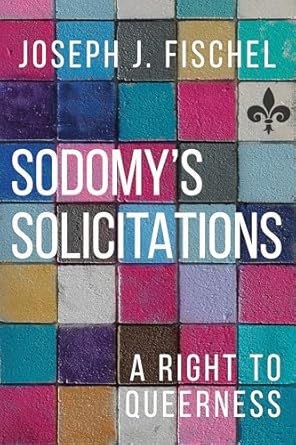 The book is erudite, playful at times, and well-argued. But whether these two relatively straight-forward propositions require so much theorizing and intricate prose is debatable, at least outside the groves of academe, where the author writes from a perch at Yale. One can imagine functionaries in the current White House looking at this book and immediately barking out orders to cut federal funding for New Haven.
The book is erudite, playful at times, and well-argued. But whether these two relatively straight-forward propositions require so much theorizing and intricate prose is debatable, at least outside the groves of academe, where the author writes from a perch at Yale. One can imagine functionaries in the current White House looking at this book and immediately barking out orders to cut federal funding for New Haven.
A review of Ingenious: A Biography of Benjamin Franklin, Scientist by Richard Munson
 Throughout this biography, Munson makes clear that Franklin’s scientific engagement with the world is a perpetual touchstone. No matter where he is on the planet—striving in his early life in the states, representing the states in England, working as a wartime ambassador in France, or traversing the ocean in between—Franklin is continuously scientifically inquisitive, continuously meeting and corresponding with other investigators, continuously inventing, and continuously devising and refining experiments.
Throughout this biography, Munson makes clear that Franklin’s scientific engagement with the world is a perpetual touchstone. No matter where he is on the planet—striving in his early life in the states, representing the states in England, working as a wartime ambassador in France, or traversing the ocean in between—Franklin is continuously scientifically inquisitive, continuously meeting and corresponding with other investigators, continuously inventing, and continuously devising and refining experiments.
A review of Fit Into Me by Molly Gaudry
 So many of Gaudry’s sentences, from the very first – “Because most nights during the final semester of my MFA at George Mason University, while recovering from a mild traumatic brain injury, I fell asleep watching Prison Break on my laptop in bed.” – to the penultimate sentence – “Because words, imagined in the greatest yearning, as a means of finding love, defining it; as a means of shaping it (This is how it feels, this is where it hurts) and sharing with others its permutations, astonishments, exaltations, and erosions.” – seem to offer an explanation for some unstated condition.
So many of Gaudry’s sentences, from the very first – “Because most nights during the final semester of my MFA at George Mason University, while recovering from a mild traumatic brain injury, I fell asleep watching Prison Break on my laptop in bed.” – to the penultimate sentence – “Because words, imagined in the greatest yearning, as a means of finding love, defining it; as a means of shaping it (This is how it feels, this is where it hurts) and sharing with others its permutations, astonishments, exaltations, and erosions.” – seem to offer an explanation for some unstated condition.
A review of The Victoria Principle by Michael Farrell
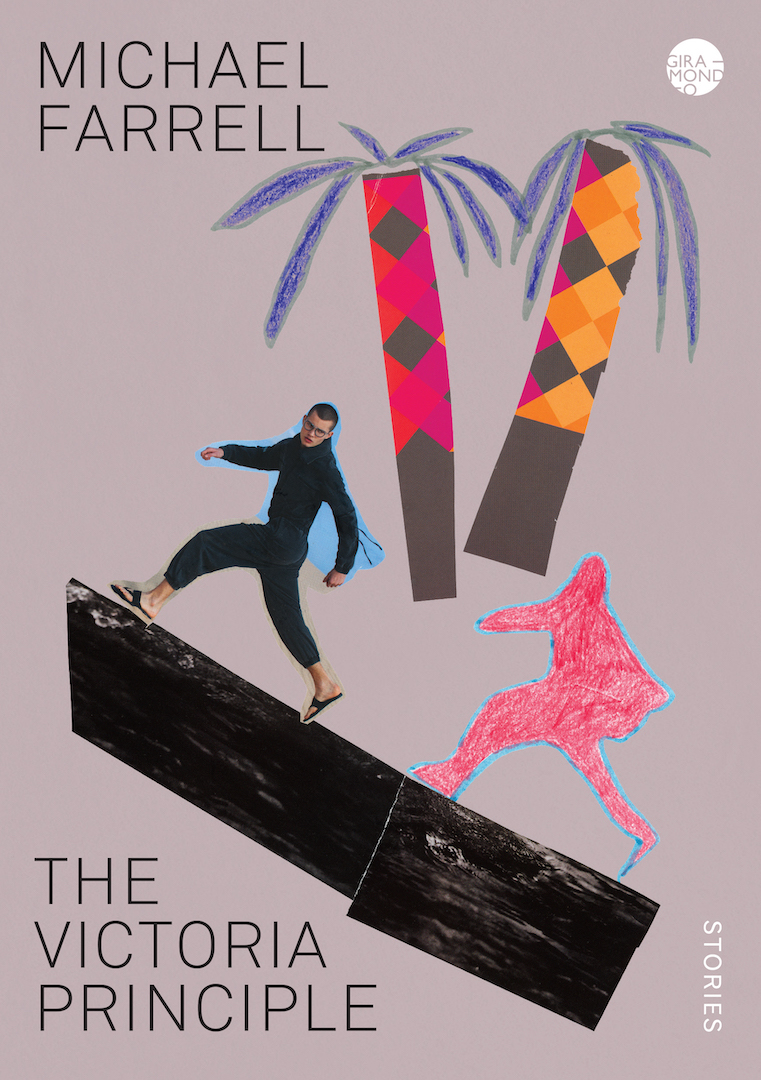 By keeping close to home, the pieces in this collection challenge notions of what is and isn’t real, undermining notions of memoir, which is a construct no matter how it’s labelled. It makes for consistently entertaining, and often challenging reading that encourages uncertainty. This shift between memoir, fiction and poetry feels seamless, challenging the reader to re-examine notions of identity, history art.
By keeping close to home, the pieces in this collection challenge notions of what is and isn’t real, undermining notions of memoir, which is a construct no matter how it’s labelled. It makes for consistently entertaining, and often challenging reading that encourages uncertainty. This shift between memoir, fiction and poetry feels seamless, challenging the reader to re-examine notions of identity, history art.
A review of Final Curtain edited by Steve Berman
 Final Curtain is a well curated collection featuring a pleasant variety of stories and interesting perspectives and interpretations of the characters and themes of The Phantom of the Opera. The period pieces are heavy and languid, broken up effectively by modern retellings, more experimental works, and the doings of cats. Choosing classical in style pieces at the fore and aft of the anthology was a masterful choice; one prepares you for what follows, the latter closes the loop; the audience at the theater retreat satisfied.
Final Curtain is a well curated collection featuring a pleasant variety of stories and interesting perspectives and interpretations of the characters and themes of The Phantom of the Opera. The period pieces are heavy and languid, broken up effectively by modern retellings, more experimental works, and the doings of cats. Choosing classical in style pieces at the fore and aft of the anthology was a masterful choice; one prepares you for what follows, the latter closes the loop; the audience at the theater retreat satisfied.
A review of Earthly by Jean Follain
 Follain’s impersonal perspective puts him, in Francis Ponge’s phrase, on the side of objects. The natural features and man-made things that fill his poems are given presences of their own, which Follain brings out with a sharp eye and an understanding of their place within the human world.
Follain’s impersonal perspective puts him, in Francis Ponge’s phrase, on the side of objects. The natural features and man-made things that fill his poems are given presences of their own, which Follain brings out with a sharp eye and an understanding of their place within the human world.
A review of Where do you live? by Hanaa Ahmad Jabr and Jennifer Jean
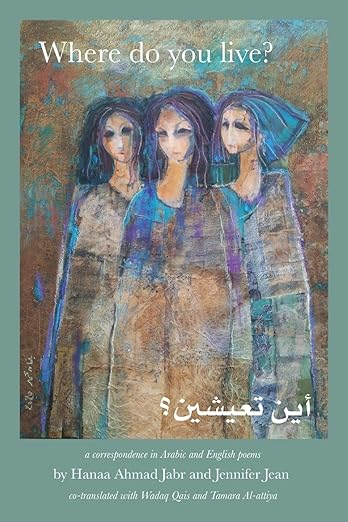 The job of creative individuals, then, is to bear witness to the horrors inflicted by those who would destroy “our distant spark of light.” We must resist and carry our light into the future. Our task, says Where do you live?, is to be constantly raw , constantly attuned to these insults. We must feel them, record them, and keep going.
The job of creative individuals, then, is to bear witness to the horrors inflicted by those who would destroy “our distant spark of light.” We must resist and carry our light into the future. Our task, says Where do you live?, is to be constantly raw , constantly attuned to these insults. We must feel them, record them, and keep going.
A review of The Dingo’s Noctuary by Judith Nangala Crispin
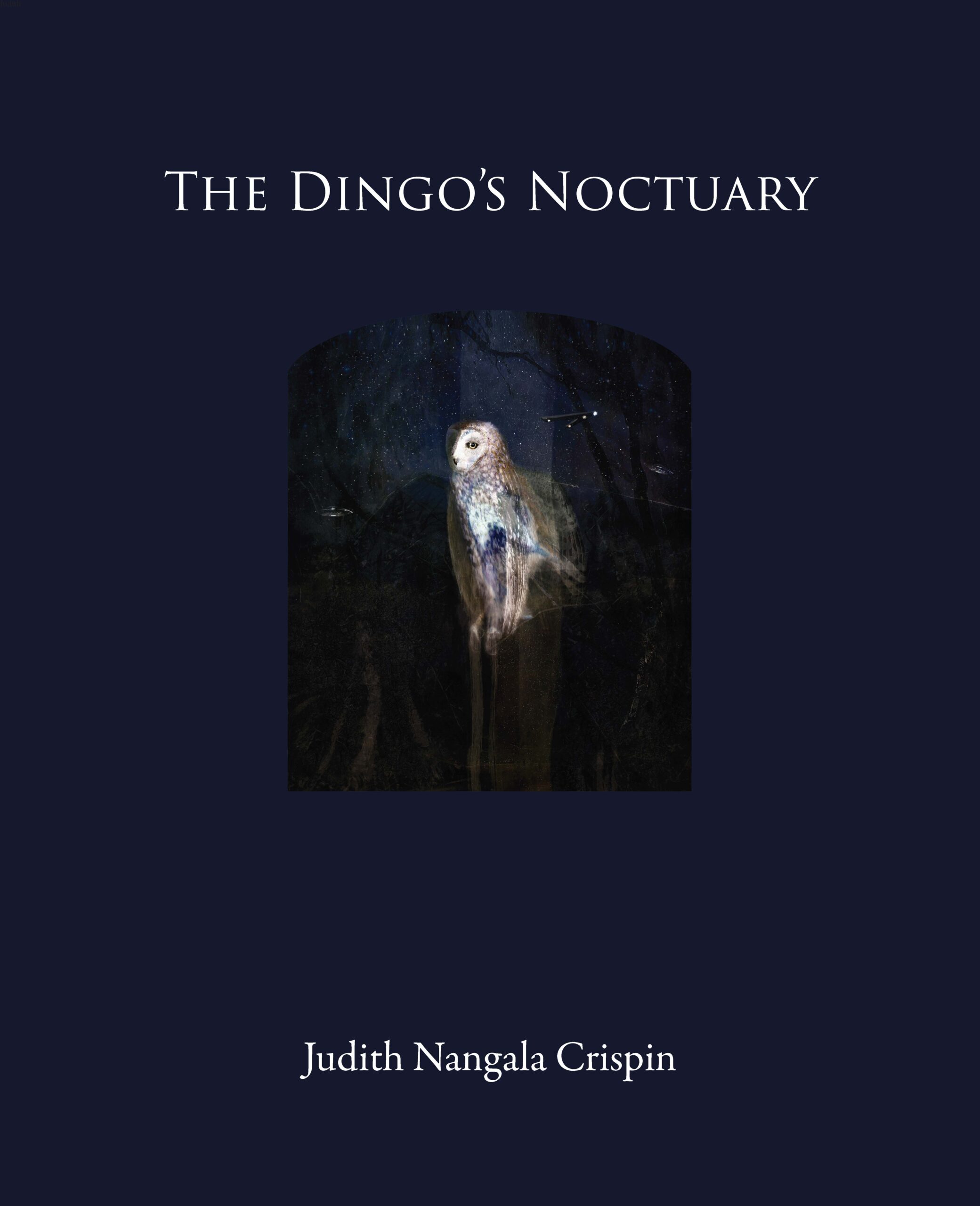 The idea that we are all en route to returning to outer space is a healing and consoling thought, bringing together the many themes in the book in a way that is both beautiful and heartbreaking. At $130,The Dingo’s Noctuary is not a cheap book, but it is a work of art, and one that continues to call the reader back to find new threads, new stories, and new transformations.
The idea that we are all en route to returning to outer space is a healing and consoling thought, bringing together the many themes in the book in a way that is both beautiful and heartbreaking. At $130,The Dingo’s Noctuary is not a cheap book, but it is a work of art, and one that continues to call the reader back to find new threads, new stories, and new transformations.
It Can Happen Here. And Here. And Here: a review of Helen Button by Carol Roh Spaulding
 Helen Button is a minor character in Stein’s 1940 novel Paris, France. But in Carol Roh Spaulding’s ambitious, painstakingly researched, dual-narrative novel, Hélène—whose American mother is fragile, whose French father has left the family, and whose stuffy stepfather, while by no means a horror, works for the Vichy government—arrives on the page as an eighty-three year-old woman in 2005, haunted by the memory of Isaiah Langwill, a three-year-old Jewish orphan who may or may not have been sent to a concentration camp from a hiding place near Stein and Toklas’s country home.
Helen Button is a minor character in Stein’s 1940 novel Paris, France. But in Carol Roh Spaulding’s ambitious, painstakingly researched, dual-narrative novel, Hélène—whose American mother is fragile, whose French father has left the family, and whose stuffy stepfather, while by no means a horror, works for the Vichy government—arrives on the page as an eighty-three year-old woman in 2005, haunted by the memory of Isaiah Langwill, a three-year-old Jewish orphan who may or may not have been sent to a concentration camp from a hiding place near Stein and Toklas’s country home.
An interview with John Stith
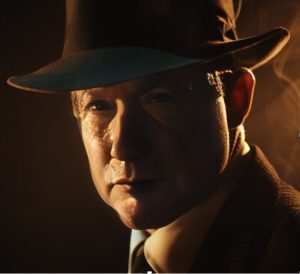 On a hillside in a sand-colored, Sante Fe style house, surrounded with natural, wild vegetation, writer John E. Stith is busy working on his next novel. (The landscape is tended by his wife, Karen, who is a master gardener.) Now 78, Stith is busier than ever. Last year his novel Disavowed (Amazing Selects) was published, as was his young adult trilogy, Tiny Time Machine. He’s also working with folks in the movie business to get his novel Manhattan Transfer to the big screen…or a smaller TV screen, or any screen. Stith is quiet, unassuming, a tech whiz, (he’s made his own computers) has a wry sense of humor, can discuss and is interested in…everything. As we sit in his sunlit front room, surrounded by books, his awards, and posters of his novels, he brings me up to date on his writing.
On a hillside in a sand-colored, Sante Fe style house, surrounded with natural, wild vegetation, writer John E. Stith is busy working on his next novel. (The landscape is tended by his wife, Karen, who is a master gardener.) Now 78, Stith is busier than ever. Last year his novel Disavowed (Amazing Selects) was published, as was his young adult trilogy, Tiny Time Machine. He’s also working with folks in the movie business to get his novel Manhattan Transfer to the big screen…or a smaller TV screen, or any screen. Stith is quiet, unassuming, a tech whiz, (he’s made his own computers) has a wry sense of humor, can discuss and is interested in…everything. As we sit in his sunlit front room, surrounded by books, his awards, and posters of his novels, he brings me up to date on his writing.